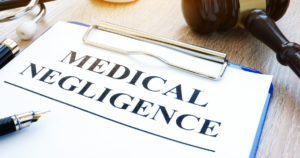Summertime Skin Safety Tips
May 15, 2020 According to the Skin Cancer Foundation (SCF), the incidence rate of skin cancers in the United States has increased by nearly 80% in the last 25 years. Every year, more Americans receive skin cancer diagnoses than all other types of cancer combined. Early detection and medical intervention are some of the most effective tools for beating skin cancer, but with warmer weather approaching there are also a variety of steps that you can take to protect your skin and limit skin cancer-related risks.
According to the Skin Cancer Foundation (SCF), the incidence rate of skin cancers in the United States has increased by nearly 80% in the last 25 years. Every year, more Americans receive skin cancer diagnoses than all other types of cancer combined. Early detection and medical intervention are some of the most effective tools for beating skin cancer, but with warmer weather approaching there are also a variety of steps that you can take to protect your skin and limit skin cancer-related risks.
With so many of us spending more time indoors now than ever before because of the COVID-19 outbreak, many people are yearning to get outside and soak up the rays. While there are numerous health benefits to being outdoors, it is also critical to take protective measures to limit dangerous levels of sun exposure. Overexposure to ultraviolet (UV) light from the sun or artificial tanning sources is one of the most preventable causes of skin cancer. The Centers for Disease Control and Prevention (CDC) report that the most common types of skin cancers are squamous and basal cell carcinoma (approximately 5.4 million new cases annually), both of which are typically treatable. The third most common skin cancer, melanoma, which affects roughly 100,000 people every year, tends to be more aggressive and deadly.
Tips For Preventing Skin Cancers
More than 2 people die of skin cancer every hour, and 1 in 5 Americans will develop skin cancer by the time they are 70-years-old – but the more you protect your skin from harmful UV rays, the better your chances for avoiding skin cancer are. One of the best ways to notice skin cancer early on is to perform regular self-exams at home. Some of the most common signs and symptoms of skin cancers to watch out for when examining your skin include:
- New growths, changes to old growths, or sores that do not heal,
- Skin spots or moles that have irregular or jagged-looking borders,
- Uneven or multi-colored skin spots,
- A spot or mole with a diameter larger than pea-sized, and:
- Asymmetrical skin spots or moles
Wearing sunscreen every day – even if the sun does not seem to be out – is critical. The Food and Drug Administration (FDA) recommends using a broad-spectrum sunscreen with a SPF, or sun protection factor, of at least 30. Broad-spectrum sunscreens guard against different types of ultraviolet rays. The FDA also recommends checking the expiration date of sunscreen before using it as well as making sure it has not been exposed to heat for long periods of time, since these factors can limit its effectiveness at protecting the skin.
There are many other ways you can protect your skin from potentially harmful UV rays as well. Here are just a few examples of steps you can take to reduce skin cancer risks:
- Cover up whenever you can. When possible, wear a hat, long sleeves and pants, and sunglasses to protect your eyes,
- Reapply broad-spectrum sunscreen of at least 30 SPF every two hours in addition to after sweating or swimming,
- Avoid tanning beds and sun lamps, and:
- Seek shade, especially between the hours of 10 a.m. and 4 p.m., when UV rays are the most concentrated
Because early detection is so crucial, you should report any concerning signs or symptoms to your doctor. While the five-year survival rate for skin cancers can be as high as 99%, it decreases rapidly in the absence of early diagnosis and in many cases, medical treatment.
If you became ill because of a medical professional’s failure to diagnose and treat you in a prompt and accurate manner, you may be able to file a legal claim for damages. To learn more about filing a claim, please contact a representative online.
Philadelphia Medical Malpractice Lawyers at Galfand Berger, LLP Representing Injured Individuals Since 1947
With offices located in Philadelphia, Bethlehem, Lancaster, and Reading, Galfand Berger serves clients throughout Pennsylvania and New Jersey. To schedule a consultation with our legal team, call us at 800-222-8792 or complete our online contact form.
 Google Screened
Google Screened
